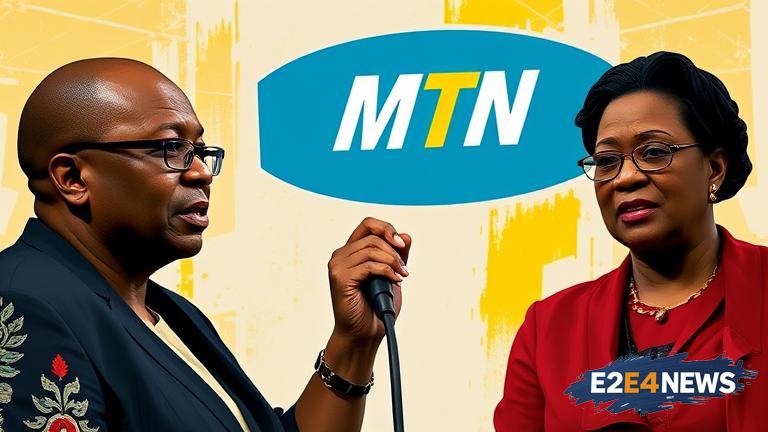The South African political landscape has been abuzz with controversy as Helen Zille, a prominent figure in the country’s opposition, has publicly called on President Cyril Ramaphosa to disclose the truth about his administration’s links to telecommunications giant MTN. This development has sparked a heated debate, with many questioning the government’s transparency and potential conflicts of interest. Zille’s demands come amidst growing concerns about the influence of large corporations on government decision-making and the potential for undue favoritism. The MTN saga has been unfolding for some time, with allegations of the company’s involvement in questionable dealings and potential breaches of regulatory requirements. As the situation continues to unfold, Ramaphosa’s administration is facing increasing pressure to provide clarity on its relationship with MTN. The president’s silence on the matter has only served to fuel speculation and skepticism, with many calling for a full disclosure of any ties between the government and the telecoms company. Zille’s intervention has added significant weight to the demands for transparency, given her stature as a respected politician and her history of advocating for good governance. The Democratic Alliance leader has consistently pushed for accountability and openness in government, and her latest move is seen as a continuation of this effort. As the controversy gains momentum, it remains to be seen how Ramaphosa’s administration will respond to the mounting pressure. The government’s handling of the situation will likely have significant implications for its reputation and the public’s perception of its commitment to transparency. With the country’s history of corruption and cronyism, the MTN saga has the potential to become a defining issue for the current administration. The opposition is likely to continue pushing for answers, and the media will undoubtedly maintain a close watch on developments. As the story continues to unfold, it is essential for the government to prioritize transparency and accountability, not only to address the current controversy but also to restore public trust in the administration. The MTN links saga has also raised questions about the role of large corporations in South African politics and the potential for regulatory capture. The government’s response to the situation will be closely watched, both domestically and internationally, as investors and stakeholders seek clarity on the country’s commitment to good governance. In the midst of this controversy, it is crucial for the government to demonstrate its dedication to transparency and accountability, lest it faces further erosion of public trust. The Ramaphosa administration’s handling of the MTN saga will undoubtedly be seen as a test of its commitment to these values. As the situation continues to evolve, it is likely that more information will come to light, and the government will be forced to confront the consequences of its actions. The public’s demand for transparency and accountability will only continue to grow, and it is essential for the government to prioritize these values to maintain its legitimacy. The MTN controversy has also sparked a broader debate about the need for greater transparency in government dealings with large corporations. This discussion is likely to continue, with many advocating for more stringent regulations and oversight mechanisms to prevent potential conflicts of interest. As the country navigates this complex issue, it is essential for all stakeholders to prioritize transparency, accountability, and good governance. The government’s response to the MTN saga will have far-reaching implications, not only for its reputation but also for the country’s overall governance framework. In conclusion, the MTN links controversy has become a significant challenge for the Ramaphosa administration, with far-reaching implications for the country’s governance and transparency. As the situation continues to unfold, it is crucial for the government to prioritize transparency, accountability, and good governance to maintain public trust and ensure the country’s continued progress.
